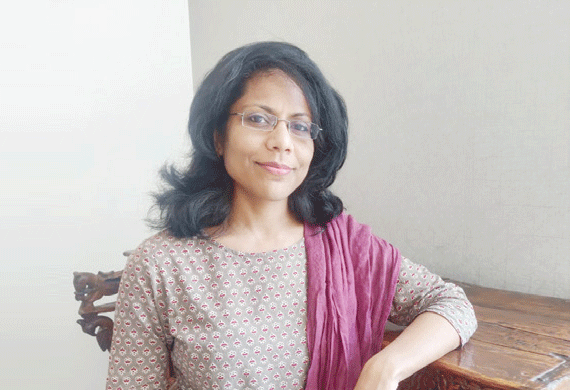
How To Sort Out Complexities In Supply Chain Management
By: Seema Mohanty, Global Supplier Manager, Bayer India
Please State Your Experience For Development Of Excellent Quality Supply Chain Network And What Are Your Contributions As A Leader?
In my experience, for an effective and efficient supply chain network, the various units of Demand generation, Planning, Procurement, Logistics and Production should work in tandem and not in silos. They should have common and mutually dependent performance indicator metrics. As they say, `A chain is as strong as its weakest link'. And so is also true for our supply chains. So, for our supply chains to be strong, each of the units must `speak' to one another and work in a collaborative fashion.
It also helps if people get multi-functional work experience. I have always believed in cross-functional movement of people. It not only help employees get various experiences and a holistic view of how organizations function, but also helps organizations. For an organization, it is always beneficial when its people are able to work seamlessly across functions for a common objective.
How Collaborative Stakeholder And Supplier Management Are Helping In Solving Complex Supply Chain Models?
Supply Chains are as much about people as they are about material and information flow. As a Supply Chain professional, it is vital to understand what your stakeholders need and how best that can be managed through your suppliers. This helps to understand requirements better and also to arrive at the best possible solution to a need.
But, we should not forget the role of technology as an enabler in this chain. We have seen during the COVID lockdowns and restrictions around the world, that organizations who were more digitalized, were able to navigate through their operations better.
How Can Category Management And Strategic Sourcing Help In Procuring And Distributing A Plethora Of Products?
It is important for organizations to buy products and services at the right price, right quantity, right specifications and at the right time. And not only that, whatever is bought should be done in a compliant and transparent manner. Various other parameters like sustainability, ethical and labor standards of the suppliers from whom procurement is done, should also be paid due attention to.
"For the supply chain professional of today, it is important to be skilled in the necessary technologies and systems as well, in order to be able to leverage the power of technology"
And all these are easier said than done without a proper approach towards procurement. By segmenting spend into areas of related products or services and establishing a common broad approach for each category, much efficiency and value can be added to the procurement process. And once Category Management approach is in place, each product in that category needs to be handled with a strategy that fits the overall organization objectives in the best possible manner. No matter what the product or service is, the best decisions are the ones which take total cost of ownership into account.
WHAT ARE THE INCLUSIONS OF A QUALITY SUPPLY CHAIN MANAGEMENT PROFESSIONAL IN TERMS OF SKILLS?
The best Supply Chain professionals are the ones who are able to map customer demands to production and supplier capabilities. This is a vast end-to-end area to master. And the easiest way to do this is to not only understand business needs and priorities, but also the capabilities of external suppliers. In terms of skillsets, this translates into knowing what the short term and medium-long term objectives of the organization are. One also needs to be adept at stakeholder and supplier relationship management. And for the Supply Chain professional of today, it is important to be skilled in the necessary technologies and systems as well, in order to be able to leverage the power of technology.
What Is The Future Of Supply Chain Network?
The world is currently experiencing a plethora of disruptions to Supply Chain networks. Those who have been observing global supply chains can tell that the number of such disruptions is only increasing - COVID restrictions, shipping constraints and container space unavailability and Ukraine-Russia war to name some prominent few. So, with all these disruptions and more, the supply chain networks that can remain resilient will be the ones to survive.
Supply Chain networks will get increasingly digitalized, and thus will become more susceptible to cyber-attacks. This, as a potential risk area, needs to be watched out for.
Increasingly customers and shareholders are choosing green supply chains and so organizations need to start working towards it, if not already.
And with all these changes shaping up our Supply Chains, we would need professionals who are continually learning and adapting, who are able to make the best use of technology and who are able to understand the pulse of their stakeholders, both internal as well as external.






